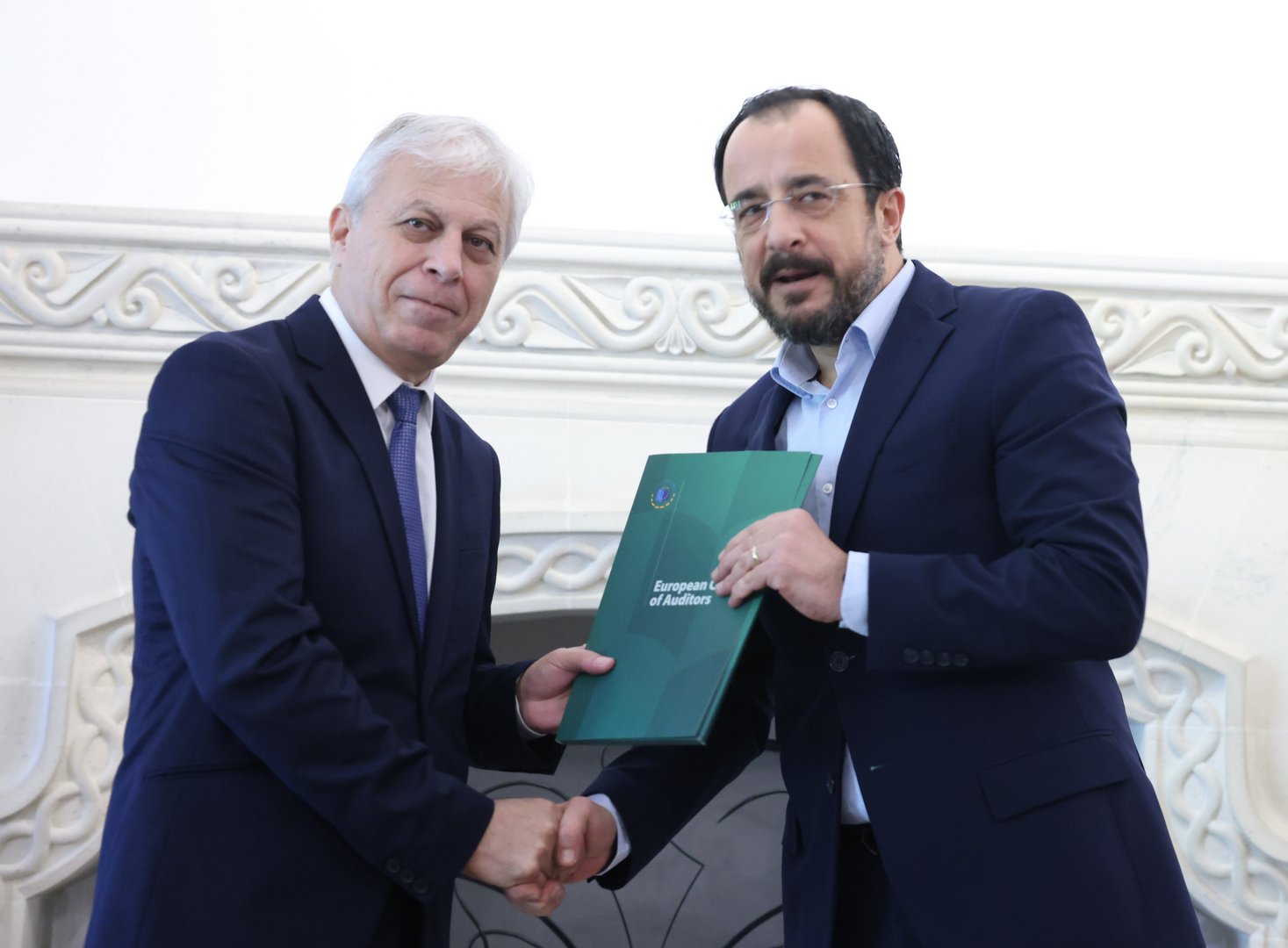Cyprus’ accession to the EU was its greatest achievement since the country’s founding, President Nikos Christodoulides said on Friday as he received the EU funding report for 2022.
The president met with Lefteris Christoforou of the EU’s Court of Auditors (ECA) and vowed that Cyprus will continue its deep engagement with the bloc.
Christoforou detailed that Cyprus is amongst the top four member states in terms of success in absorbing available funds, reiterating that over €3 billion can be received.
Christodoulides said that he will build on and continue the work of the previous government which was “very successful” in receiving and utlising EU funds.
“Just as the previous government felt that it was its programme so do we in terms of the recovery and resilience plan,” he said, referring to 2013 EU bailout deal.
Friday’s meeting comes a day after Christoforou met with House President Annita Demetriou, where he explained that Cyprus has now receives more EU funds than it pays it.
That reverses a long-standing position of being a net contributor.
Presenting the report to House president Annita Demetriou, he said: “Cyprus has ceased to be an equal contributor to the EU… now it receives multiple times more money from the EU.”
Christoforou further praised Cyprus for being a “champion” in terms of absorbing EU funds, explaining that it is beyond 95 per cent and hopes that the island will utilise every euro available.
The president praised the “very important work” of the court of auditors which is tasked with overseeing the way EU funds are spent.
He explained that such meetings are crucial for ensuring that all state institutions are on the same page and are aware of changes which must be made to receive the funding.
“So that we don’t lose a single cent,” the president concluded.
Cyprus is eligible for the funds once it reaches various milestones/targets. In this respect, and regarding the national Recovery and Resilience Plan, Christoforou said the ECA has examined a sample of 14 out of the 270 milestones. The only issue flagged was that the promised reform of the civil service – now scheduled to start in early 2024 – ought to have begun earlier.







Click here to change your cookie preferences